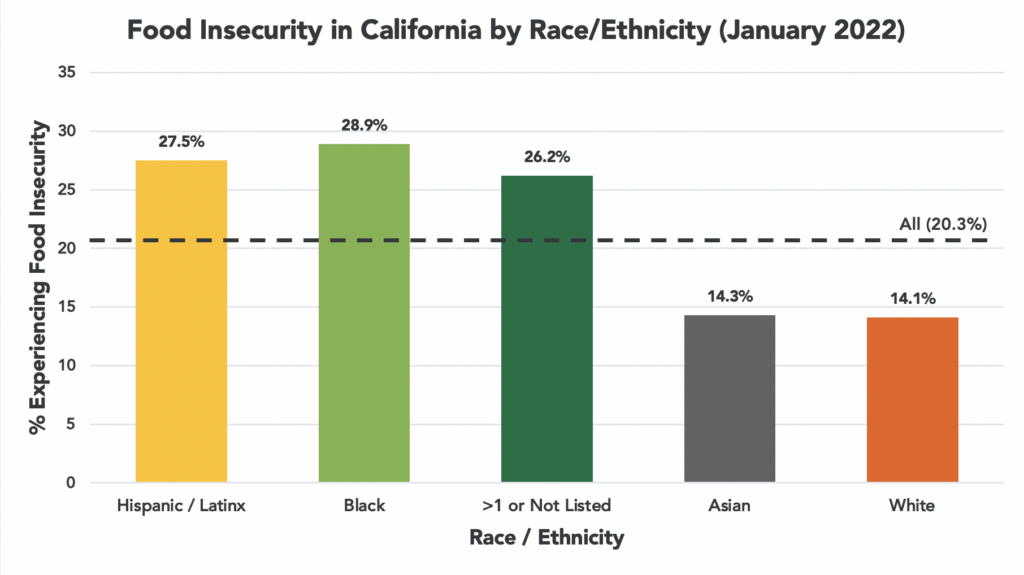Public Health Emergency Extension is a Critical Step Toward Averting Further Hunger Crisis
4 月 15, 2022
我们的食物银行网络随时为您提供帮助 — 寻找食物和资源
On Wednesday, April 13, 2022, the federal COVID-19 public health emergency was extended for another three months until mid-July. We applaud U.S. Health and Human Services Secretary Xavier Becerra for the extension, which allows for ongoing Emergency Allotments for SNAP (CalFresh in California) recipients, and streamlines access to SNAP for college students and people who are unemployed or underemployed. Unfortunately, when the public health emergency does come to an end, households on SNAP will be faced with a harsh reality of even smaller grocery budgets. Benefits will drop by an average of $82 a month per person, impacting 4.6 million Californians who rely on SNAP to eat.
Hunger remains shockingly high in California, and the larger economic and social impact will no doubt be felt for years to come. The most recent data shows an alarming trend. Since the August 2021 pandemic low, hunger has risen from 15.9% to more than 20% of Californians facing food insecurity — with rates closer to 30% for Black, Latinx, and Multiracial Californians.

SNAP is the nation’s first line of defense against hunger and enhances the purchasing power of millions of eligible households with low incomes. This proven program also stimulates the economy, particularly during economic downturns. Each $1 in SNAP benefits generates between $1.50 and $1.80 in economic activity.
的 家庭首次冠状病毒应对法 has allowed for SNAP Emergency Allotments while both federal and state public health emergency orders are in effect. This granted the U.S. Department of Agriculture (USDA) the authority to give states the flexibility to issue additional SNAP benefits, bringing household benefits up to the maximum allowable for their household size. Last month alone, $442 million in Emergency Allotments were issued to CalFresh recipients, and since April 2020, the total is more than $8 billion.
Even under normal conditions, it is not possible for food banks and emergency food providers to make up for gaps in the federal safety net: for every 1 meal that food banks distribute, SNAP delivers 9. Simply put, California is facing a looming “hunger cliff” that could be extremely detrimental, but one that is preventable. We know from the Great Recession that prematurely ending SNAP aid during a crisis will only consign Californians to a decade of elevated hunger.
Now is the time to learn that lesson: we ask that Congress prevent this hunger cliff by extending the Emergency Allotments beyond the Public Health Emergency, and sunset them gradually over a period of months to allow time for families to adjust and mitigate this food loss as much as possible.
In addition to preventing the harm that will be caused by the end of Emergency Allotments, Congress should pass three bills that will allow us to keep serving the needs of hungry Californians and avoid additional hunger cliffs associated with the Public Health Emergency:
We call on our Congressional leaders to take swift and bold action to extend the SNAP Emergency Allotments and pass critical legislation to prevent a food cliff and make permanent improvements to SNAP. The federal response during the pandemic has been nothing short of life-saving, proving once and for all that we have the policies to fight hunger. No Californian should go hungry in our great nation — now is the moment to continue to deliver a more just and equitable recovery on the road to a hunger-free future.